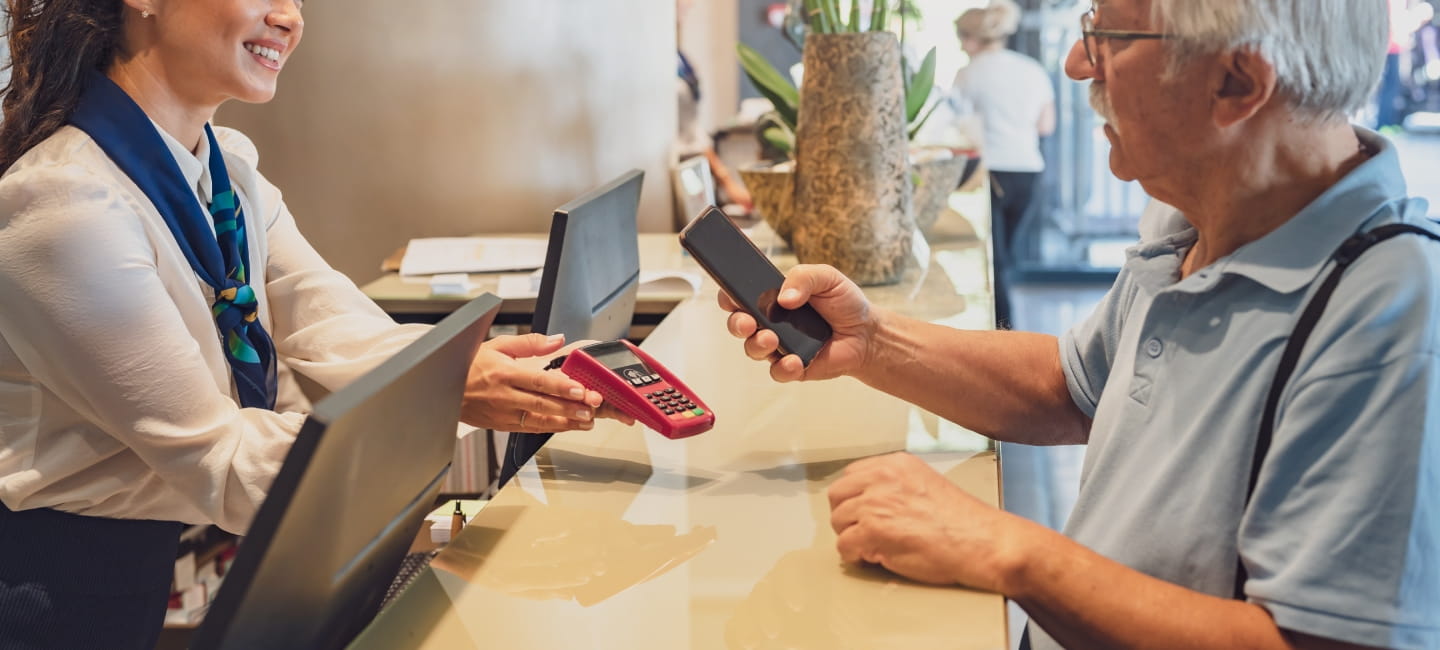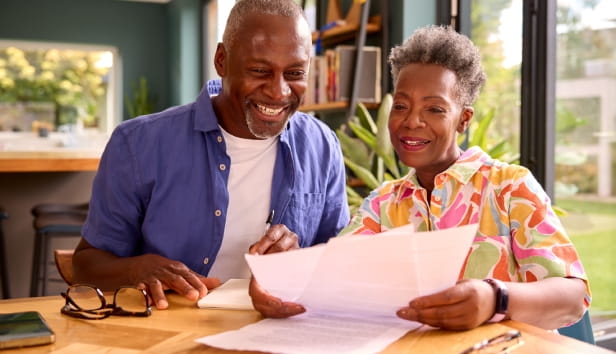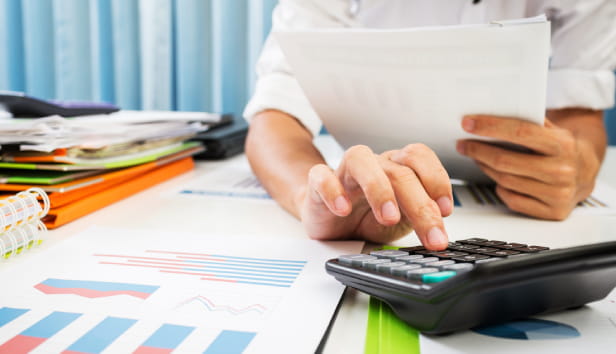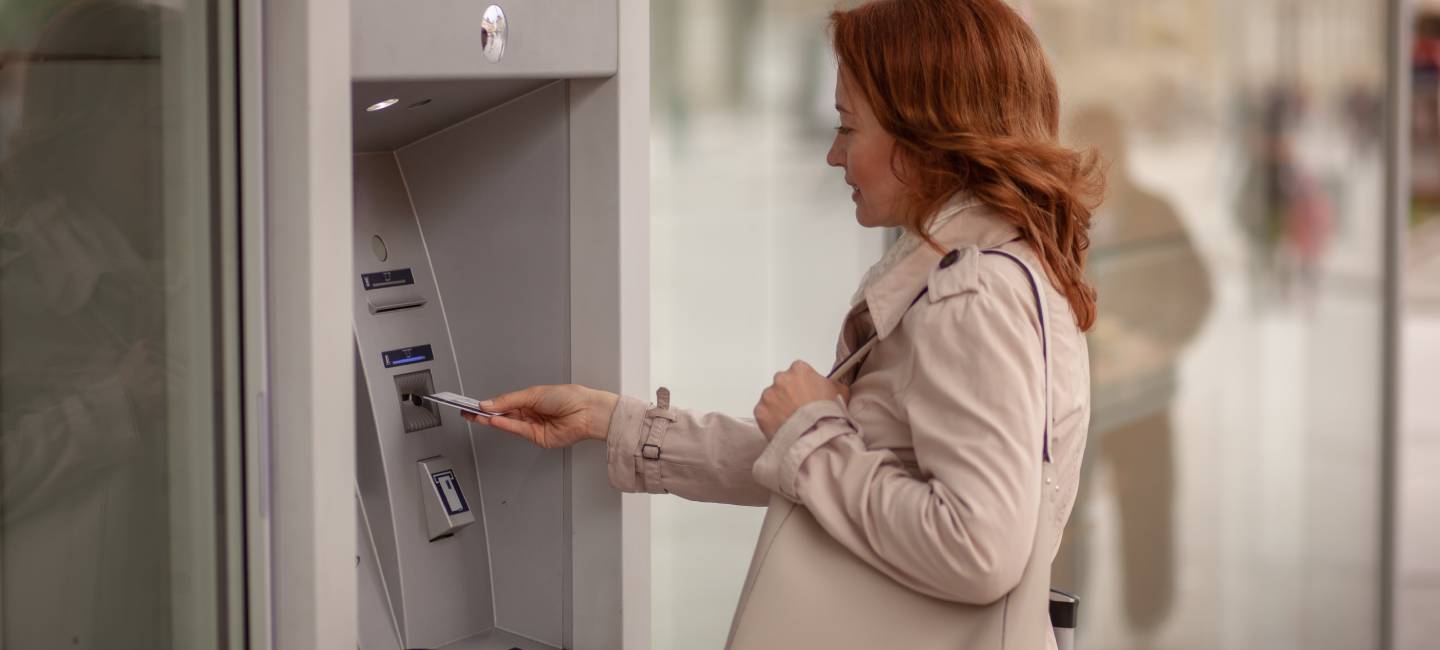
Have you been on holiday in the last few years and noticed something... different?
You didn’t have to wander into town, passport in pocket, to go and cash some traveller's cheques. You didn't find yourself outside a Bureau De Change trying to work out whether you’d be paying over the odds for extra currency.
You didn't have to check if there were limits to how much currency you could travel with, and you didn't come home with stacks of coins you can't swap for pounds.
From burgers to boat trips, fine dining to in-flight food, whenever people need to pay for something abroad it’s often just a case of using your card or, for even safer and more convenient payment, tapping a phone.
Here in the UK we often go out without our wallet or purse because payments with a tap are the norm now; according to Barclays, contactless now accounts for 93.4% of all in-store card payments up to £100.
The good news is the technology used in contactless cards is the same as that in smartphones, meaning if we've got our phone with us, we're ready for the Tube and for Tesco alike.
Increasingly, it's the same story when we travel.
That's great news if you like life to be easy. But there are a few things you need to know about paying with your phone abroad.
Matthew Bermudez is the UK Country Manager for financial tech firm myPOS. "It might seem dangerous to load all your card information onto your phone, but it’s more secure to use it for payments on holiday," he says.
As he points out, phones have security features that cards don't: "Payments with our phones typically require biometric authentication (fingerprint, facial recognition) or a passcode, adding an extra layer of security," he says.
As we explained in our guide to keeping your money safe when you travel, the big danger with contactless tech is theft – in this case, of your phone.
However, as you must have an extra layer of security enabled to add cards to your smartphone, a thief won’t be able to pick it up and start using it for payment instantly.
That said, one of the big drawbacks of using your phone to pay abroad is you’ll be regularly advertising you’ve got an attractive piece of tech in an unknown land, so stay extra vigilant and always keep your device somewhere secure and hidden.
However, if the worst were to happen, you can still take steps to stop thieves from being able to access your cards.
“If your phone is lost or stolen, you can remotely disable your digital wallet through a computer or tablet," Bermudez adds.
If you’re unfamiliar with doing this, spend some time before heading abroad learning how it works – or, alternatively, have a trusted friend or family member on hand to instantly do the job for you.
Bermudez also recommends ensuring that your apps and phone operating system are up to date for the best security and checking your banking and payment apps regularly to keep an eye out for rogue transactions.
You may need to let your bank know that you're travelling so that they don't block your payments abroad – for example, Natwest asks you to notify it at least 24 hours in advance if speaking to staff over the phone, and many banks will allow you to confirm you’re travelling simply by using their app.
Adding your bank cards to your phone is simple. There are three main types, depending on which phone you have: Apple Pay if you’re using an iPhone, Samsung Pay if you’re on a Samsung device, and Google Pay for most Android phones.
(If you’re not sure if you have an Android device, go to the ‘Settings’ and click ‘About Phone’ - it’ll usually tell you there).
Once you’re ready to get set up on one of the systems, it’s a straightforward process to getting a card added. Here's how to do it on Apple phones, here's the Google Pay equivalent and Samsung's instructions are here.
You'll need to confirm the addition with the card issuer before you can proceed – this can be achieved by phone call, using your bank’s app or text message. Once you've done that, you're ready to go.
Not all banks and card issuers have deals in place with the likes of Apple, Samsung or Google, although you shouldn't have a problem with adding cards from high street or well-known online banks.
If you want to check before starting the process, the payment partners for Apple, Google and Samsung are all listed for you to browse.
.jpg?sc=max&mw=800&h=450&la=en&h=731&w=1300&hash=156C8B8AA3CD4C5C60BD52C1DF5C3E6E)
If your phone contract doesn’t allow you to roam cheaply abroad, you might be worried about needing to use expensive data whenever you want to pay using your phone.
The good news is you don’t need to worry. Your phone has a chip inside that works just like the one found in a debit or credit card and it doesn't need internet access.
"Some countries are more phone payment-friendly than others due to differences in technology adoption, infrastructure, and consumer behaviour," Bermudez explains. "But overall, these technologies have been spreading around the globe."
Big cities and tourist resorts tend to be very phone payment-friendly, but if you travel to less popular places or more rural areas then fewer shops and restaurants will have the necessary hardware for Apple Pay, Google Pay or Samsung Pay. In many parts of the world, cash is still king.
Some countries have per-transaction limits on completely contactless payments and won't let you exceed them; others will usually want your PIN for charges over a certain amount.
For example, you'll usually need to enter your card PIN for purchases over €50 in the Netherlands, Cyprus or Portugal, so it’s a smart idea to have your card to hand just in case.
While a phone is a handy and secure way of paying abroad, you shouldn’t rely on it completely for payments. Always bring your card - ideally having more than one - in case of problems.
That's because there are still many places that don't accept contactless payments, and it’s not a good idea to put all your travel money eggs in a single phone-shaped basket.
You’re also unable to withdraw cash using a smartphone, so bringing a card with you means you can take money out of machines too.
"It's better to be prepared for emergency situations like your phone running out of battery, malfunctioning or getting lost or stolen," Bermudez says. "Having a card and emergency cash provides a reliable backup."



Understand how your money is taxed in retirement and learn simple ways to reduce your bill.

/mature-couple-looking-at-taxes.jpg?la=en&h=650&w=1400&hash=5CFABEEDC751F26D56DD3E85749E3C36)



Discover the methods criminals use to steal your card details and cash, and learn essential steps to protect yourself.